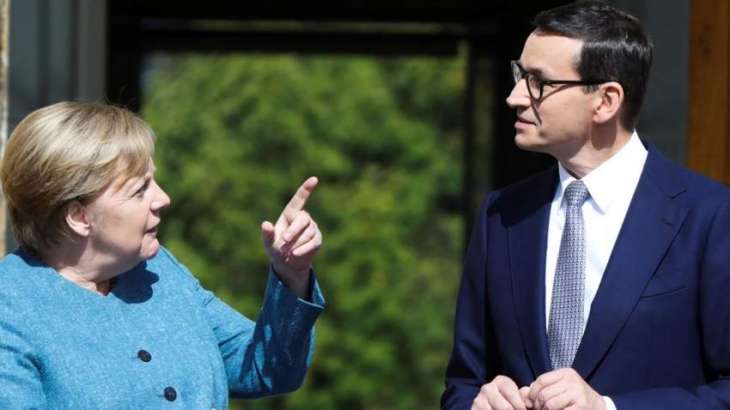Polish Prime Minister Mateusz Morawiecki said on Wednesday that he will raise the issue of the Russian-led Nord Stream 2 gas project during an upcoming meeting with Acting German Chancellor Angela Merkel
WARSAW (Pakistan Point News / Sputnik - 24th November, 2021) Polish Prime Minister Mateusz Morawiecki said on Wednesday that he will raise the issue of the Russian-led Nord Stream 2 gas project during an upcoming meeting with Acting German Chancellor Angela Merkel.
Last week, Morawiecki began his European tour to discuss countermeasures to what he described as "the threat from the East." He has already visited Lithuania, Latvia, Estonia, and met with his Czech, Slovakian and Hungarian counterparts. On Thursday, the Polish prime minister will hold a meeting with Merkel in Berlin.
"We will surely raise the topic of energy and we will raise the topic of Nord Stream 2 tomorrow in Germany, because today we can see very clearly the price manipulations in the gas market, for which (Russian gas exporter) Gazprom is responsible," Morawiecki said at a briefing in Paris.
Poland and Germany have different stances on Nord Stream 2. Warsaw believes that the pipeline should not be allowed to launch due to political considerations, while Berlin considers it a purely commercial project.
The Nord Stream 2 pipeline is designed to carry natural gas from Russia to Germany beneath the Baltic Sea. On September 10, Russia's Gazprom announced that the construction of the pipeline had been completed.
The United States has opposed the project, promoting its liquefied natural gas in Europe. Ukraine has also voiced opposition to the pipeline, fearing loss of its privileges in transiting Russian gas. Russia, for its part, has maintained that Nord Stream 2 is an entirely commercial project that should not be politicized.
Gas prices in Europe rose sharply in late summer and early fall. Experts say prices increased because of low stocks in European underground storage facilities, limited supply from the main contractors, and high demand for liquefied natural gas in Asia.




